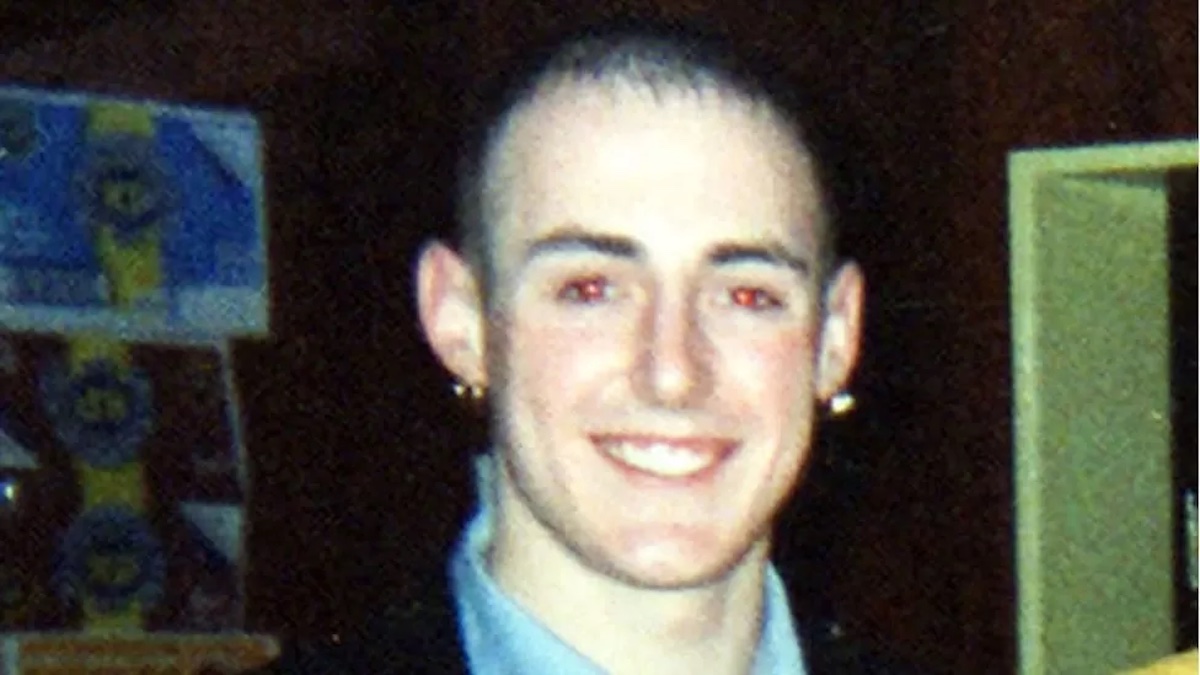
A report by the Police Ombudsman has confirmed for the family of Gerard Lawlor that the PSNI’s failure to investigate the murder of the Catholic teenager in Belfast in 2002 amounted to collusion with the loyalist paramilitaries who carried it out.
Mr Lawlor was killed in the last in a series of six attacks in north Belfast on the night of 22 July, 2002. He was shot dead by a UDA death squad shortly after midnight, murdered as he walked home after a night out at a pub on the Antrim Road.
A talented Gaelic footballer, he was 19 years old and had a partner and an 18-month-old son. No one has ever been charged with or prosecuted for his murder. Last November Gerard’s brother Aidan took his own life close to the scene of the killing.
The Ombudsman found “significant failings” in the PSNI’s behaviour but stopped short of describing it as collusion or ‘collusive behaviour’.
“It’s the Lawlor family’s firm and regretful conclusion ... that the lacklustre and pathetic excuse for an investigation confirms that the PSNI were institutionally indifferent as to whether or not any person would be charged or convicted,” the family said in a statement released through their lawyer, Niall Murphy.
They said said the findings show the PSNI “abjectly failed to conduct an appropriate investigation into Gerard’s murder”.
They added: “The family conclude from the same evidential basis as laid out in today’s report that these failings are in fact a dictionary definition of collusive behaviours, mindful of the fact that there are still investigative opportunities open to police.”
Mr Murphy said the Lawlor family now looked forward to an inquest into the murder. As the killing took place after the signing of the Good Friday Agreement, it will not be affected by the British government’s legacy bill which looks set to soon become law and end conflict-related inquests.
Commenting on the outcome of her investigation, the Ombudsman Mrs Marie Anderson said “sectarian tensions were high” on the night in north Belfast but said despite the presence of Crown Force patrols and checkpoints, they had no way to prevent the attack.
Despite admitting that the PSNI were responsible for an extensive litany of “investigative failings”, she failed to consider it amounted to collusion.
Gerard’s father John said he was dismayed by the report.
“I think the years have toned down the anger a bit,” he said. “I still believe in a just and open society, police have to be held to account.
“I think they had a golden opportunity this morning to address that and they didn’t do it. The core problem is still there, nobody is being held accountable.
“If you or I had done anything, we’d be crucified but there seems to be a part of this society that can walk about with impunity, and that’s the bit that is hard to swallow at times.
“We’re being let down, they should have been locked up years ago.”
The report is littered with failures to act on intelligence naming the suspects. A civilian worker in the PSNI who identified a person from a photo-fit later retracted this confirmation and refused to cooperate; and the motorcycle used in the shooting was later discovered burnt out near the home of a suspect who was never arrested.
One of the areas a checkpoint was absent from key interfaces was on Floral Rd, where Gerard was murdered. It was one of the only clear routes in and out of north Belfast that evening.
The report highlighted multiple failings in the subsequent investigation including a PSNI decision not to immediately arrest the two suspects but instead pursue “sensitive enquiries”; a year-long delay in arresting the pair, allowing the destruction of potential evidence; a failure to collect key telecommunications data; and a failure to link the murder to other attacks.
The murder took place four years after the Good Friday Agreement, amid a public expectation that a ‘new police service’ would carry out a proper investigation, said Mark Thompson from Relatives for Justice:
“Instead it was characterised by systemic failings, some of a significant and serious nature, that overall resulted in the killers, including those who sanctioned Gerard’s murder, evading detection and prosecution.”
Niall Murphy, lawyer for the Lawlor family, said the Ombudsman’s report presented a “detailed analysis of a pathetic police investigation”.
“The report correctly confirms a multitude of egregious failings,” he said.
“Where we differ from the Ombudsman’s conclusive analysis, we consider the facts sustain ours, whereas her analysis is that collusive behaviours were not an impediment to the investigation.
“The family considered that the facts found, the failings found, the failure to arrest suspects, the failure to erect a vehicle checkpoint at the Whitewell Road/Antrim Road junction, that those facts actually sustain their sincerely held belief that collusive behaviour was an impediment to successful prosecutions in respect of those who murdered Gerard.”
![[Irish Republican News]](https://republican-news.org/graphics/title_gifs/rn.gif)
![[Irish Republican News]](https://republican-news.org/graphics/title_gifs/harp.gif)

